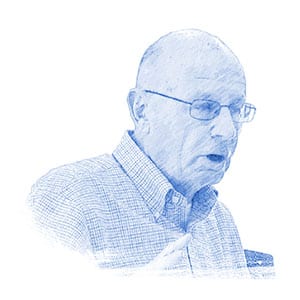Israel may be one of the noisiest of democracies. There’s with a large variety of views expressed in families of many different origins, media providing different views of news and commentary in both traditional and Internet varieties, as well as politicians, Knesset Members, government personnel, and other activists who span a wide spectrum.
There is also an element of Bolshevism, which may seem at odds with the democratic clamor, but also reflects the long history of the Jewish people, as well as the recent origins of many in Eastern Europe and the Soviet Union.
Currently a Bolshevik insistence on controlling education and information has surfaced in two disputes. One concerns the book that high schools will use to teach Civics. Another concerns a reform in the organization that produces public radio and television.
For some years the content of the high school civics text has been a target of struggle by whoever has been the Minister of Education, committees of professionals appointed by the Education Ministry, and various activists who have gone to the Supreme Court for remedy. On the one hand are leftists who want to emphasize that Israel is a land of all its people with equal rights and an obligation to teach the national histories, myths, and literature of Arabs as well as Jews. Against them are rightists who want to teach that Israel derives from the history and doctrines of the Jewish people, with a heavy emphasis on Zionism (i.e., the return of Jews to their Land), the Bible, and Judaism. A third stream that wants to emphasize the professional skills and findings of political science has trouble being heard by ideologues from the left and right. Those who think that teachers should have freedom of expression,have made no dent in the debate about the contents of the required textbook.
Controversy about the civics text book controversies focuses on secular and Orthodox high schools. There are other concerns focused on ultra-Orthodox schools that generally avoid lessons on civics, as well as Hebrew, English, mathematics, and science.
 Academics and other activists charge that politicians and professional educators affiliated with Likud and Jewish Home have seized control of the committees that appoint textbook authors, review their work, and make final decisions on what books will be used in classrooms.
Academics and other activists charge that politicians and professional educators affiliated with Likud and Jewish Home have seized control of the committees that appoint textbook authors, review their work, and make final decisions on what books will be used in classrooms.
Rightists are returning charges. They’re asserting that leftists, aligned with the Labor Party, “started it,” by taking control of textbook selections and politicizing the process when their friends were in charge of the Education Ministry.
In the same spirit, academics inclined to the right tell stories of university departments in the hands of professors who made them into near affiliates of the Labor Party or even elements further to the left. There are stories about newcomers being warned to keep any right wing sentiments to themselves, lest they damage their chances for tenure, advancement in rank, or other academic goodies. .
There are debates in departmental meetings about the content to be allowed in courses, based on the assumption of limited freedom for those assigned to teach them.
Skeptics doubt the value of such debates. University lecturers operate with norms of academic freedom. High school teachers are trained to follow the dictates of the Education Ministry, yet supervision is imperfect. Both groups of teachers are likely to exercise more independence than expected by those aspiring to control them.
There is also a long standing tussle over the reform of Israeli Broadcasting Authority, the government organization in charge of public radio and television.
In the background is a heavy overlay of surplus staff, estimated to be nearly twice what the IBA needs. There have been efforts over the years to trim the staff, contrary pressures from the workers’ unions, charges that workers and the Finance Ministry have reneged on deals, and lots of politics within the bureaucracies of broadcasting and finance, as well as among Government Ministers, Knesset Members, and activists.
Also prominent are charges from the right that the IBA tilts heavily to the left in its news and commentary.
The government and Knesset enacted a reform that involved closing the Israel Broadcasting Authority, and reopening it under a different name, in a different location, and changes in staff. Opponents charge that it is a transparent effort to assert political control over program content. Also involved were those who opposed the new creation’s location in Modiin, which they viewed as an affront against Jerusalem and a retreat from what should be the government’s continued effort to bolster Israel’s control over a disputed capital. The Minister of Culture has weighed in with comments that the government should not support media that do not support its policies. The Prime Minister has sought to dampen criticism that he wants to control media with the assertion that he wants to assure a plurality of media voices.
Outside of Israel Hayom, there are many who doubt the Prime Minister denial that he wants political influence over the media..
There is also a squabble over newspapers. Bibi’s opponents, led by Yedioth Aharonoth, which used to be the country’s newspaper with the largest circulation, have sought to ban the free distribution of newspapers. Their target is Israel Hayom, funded by Bibi’s friend and supporter Sheldon Adelson, which has some decent reportage and a range of commentators, but tilts heavily in reporting what is favorable and putting in inner pages what is unfavorable about Bibi and Sara.
It’s possible to fume at Israel’s Bolsheviks of left and right, or to conclude that the variety of Jews, the multiplicity of media, and a culture that fosters argument but not violence makes all the dispute irrelevant.
Aside from the Israel Broadcasting Authority and whatever might emerge to replace it, there are two independent television channels, whose news shows have gotten most of the audience from the anemic television of IBA. Both independent channels pride themselves in revealing irregularities that have grown to major stories, and ruined the careers of senior politicians and civil servants.
Much healthier than its television channel is the IBA’s prominent news and feature radio station. It offers popular programs early in the morning, mid-day, and when Israelis are driving home..
Israeli newspapers range from Ha’aretz on the secular left through to Israel Hayom on the right. There are also newspapers, radio and television for various sectors, including Ashkenazi and Sepharadi ultra-Orthodox, West Bank Orthodox settlers, speakers of Arabic, Amharic, Russian, French, Spanish, and English. Arabic media from Gaza and the West Bank, as well as the range of international Internet add to what is available.
Quarrels about textbooks and media reflect deep roots in Judaism for a mixture of freedom and authoritarianism. The Hebrew Bible describes assemblies convened to accept the laws of God that suggest a role for the people. but were also authoritarian. On one occasion, Joshua read text said to be from God, demanded the people’s approval, and threatened disaster if it did not come. (Joshua 24) On another occasion, a number of people rejected what Ezra demanded. He appointed a committee to deal with the issue, and the outcome is left to interpretation (Ezra 9-10).
Perhaps it’s time for yet another look at Ecclesiastes. Not only is there a time for this and a time for that, but there isn’t anything new under the heavens.
In the spirit of all the above, comments are welcome.
Reprinted with author’s permission from The Jerusalem Post



